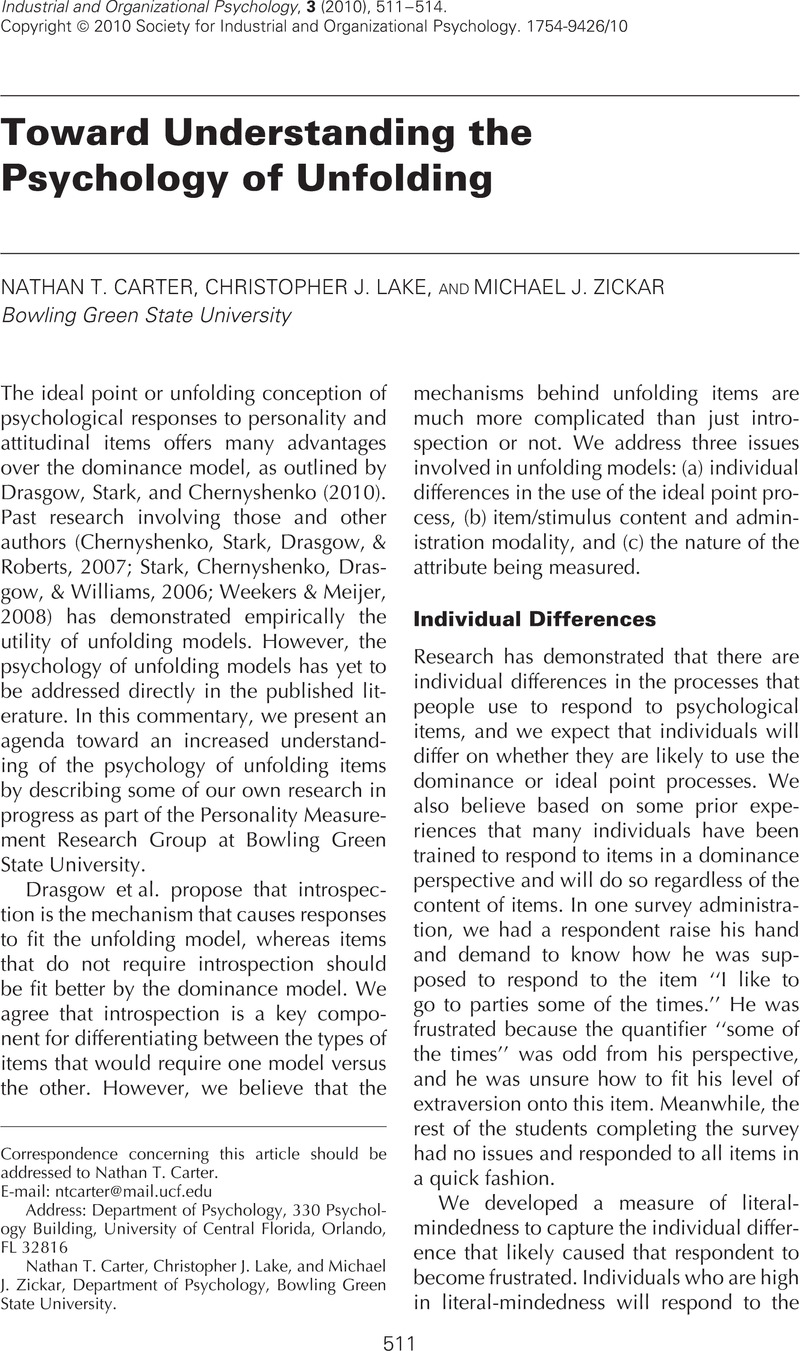Crossref Citations
This article has been cited by the following publications. This list is generated based on data provided by Crossref.
Drasgow, Fritz
Chernyshenko, Oleksandr S.
and
Stark, Stephen
2010.
Improving the Measurement of Psychological Variables: Ideal Point Models Rock!.
Industrial and Organizational Psychology,
Vol. 3,
Issue. 4,
p.
515.
Park, DongGun
Choi, MyungOk
Lee, WonSun
Lee, HyeMin
and
Lee, JunHee
2012.
Comparison between dominance process model and ideal point response model for personality assesment.
Korean Journal of Industrial and Organizational Psychology,
Vol. 25,
Issue. 2,
p.
421.
Dalal, Dev K.
Carter, Nathan T.
and
Lake, Christopher J.
2014.
Middle Response Scale Options are Inappropriate for Ideal Point Scales.
Journal of Business and Psychology,
Vol. 29,
Issue. 3,
p.
463.
D’Ambrosio, Antonio
Vera, J. Fernando
and
Heiser, Willem J.
2022.
Avoiding Degeneracies in Ordinal Unfolding Using Kemeny-Equivalent Dissimilarities for Two-Way Two-Mode Preference Rank Data.
Multivariate Behavioral Research,
Vol. 57,
Issue. 4,
p.
679.
Zhang, Bo
Chalmers, R. Philip
Li, Lingyue
Sun, Tianjun
and
Tay, Louis
2024.
One Size Does Not Fit All: Unraveling Item Response Process Heterogeneity Using the Mixture Dominance-Unfolding Model (MixDUM).
Organizational Research Methods,



